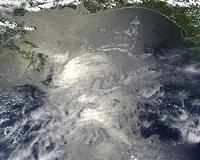 |
Jeddah, Saudi Arabia (AFP) Oct 4, 2010 Rising demand and deep subsidies on fuel, electricity and water are burning huge holes in the Saudi budget and threaten to eat into its capacity to export oil, officials and experts warn. Oil for electricity generation is sold to power plants at about five percent of the world market price, with those savings passed on to consumers. And water -- both from the ground and from oil-fired desalinisation plants -- is sold at 1/100th of the cost. And with petrol for cars and trucks dispensed as low as 12 US cents a litre, domestic energy consumption is skyrocketing with no incentives for anyone to conserve, experts said. The government subsidises power consumption to the tune of 50 billion riyals (13.3. billion dollars) a year -- the equivalent of nine percent of government expenditures in 2009 -- said Abdullah al-Shehri, governor of the Electricity and Co-generation Regulatory Authority. Meanwhile electricity consumption is growing at a rate of 12 percent this year, almost all of it produced by oil-fired plants. "If the (power) prices remain low, the subsidies are going to be huge on the government budget," said Shehri, speaking at the Saudi Water and Power Forum in Jeddah on Sunday. "If we continue our current consumption, we will be using 50 percent of our (oil) production inside the country in the future," said Adil Bushnak, a water expert whose research firm Al-Aghar is completing a broad study on the subsidy problem. Bushnak said the country lacks the political will to move against the subsidies. "The challenge is how to get this message across to established politicians, who are always afraid to touch the water tariff," he said. "It is ridiculous because it is only helping the rich." With the world's largest oil reserves, Saudi Arabia has long been able to afford to supply oil domestically at nearly give-away prices. The kingdom burns about 2.5 million barrels a day internally, out of its total production of 8-9 million barrels a day. Nearly half of that goes to fuel power plants, which pay a fraction of the global oil price of around 80 dollars a barrel. With a surplus production capacity of about four million barrels a day, this has not yet impacted its crucial oil export earnings. But domestic oil use is growing at 5.9 percent a year, much faster than the economy itself, according to the central bank. Over the long term, Shehri said, "the government support may not be sustainable." Meanwhile groundwater, as scarce in the desert kingdom as oil is bounteous, is being sucked up at a rate of four times natural replenishment. So Saudis are increasingly dependent on water from electricity-intensive desalinisation plants. But at rates he called "almost free", there is no incentive for limiting water consumption, Minister for Water and Electricity Abdullah al-Hussayen acknowledged. Consumers pay ten halalas, or 2.7 cents, per cubic metre of water, one percent of the cost to the state water utility, and far below the average world price of 1.81 dollars, said Christopher Gasson, publisher of Global Water Intelligence. "If you have unlimited demand for something that's essentially free, the system is bound to fail," Gasson said. The issue is convincing ministers at the cabinet level, and above them the royal court of King Abdullah, to force consumers to pay more. Hussayen points out that Saudi consumers are clearly willing to pay 200 riyals (53 dollars) a month for their cell phones, while they pay only a few riyals for water. And indeed, poorer rural Saudis who live off the piped water network pay ten times or more than the official price to buy water from tanker trucks. The country is now moving toward developing alternatives to oil-fired power, including solar, wind and nuclear, and introducing more recycling of water. A pilot project for a solar-powered desalinisation plant is underway, and the government has announced the King Abdullah City for Atomic and Renewable Energy to research alternative energy sources. But with the subsidy issue unaddressed, there is no commercial incentive for investors in such projects -- meaning more government spending. "The economics of renewables are not favourable to Saudi Arabia today," said Khalid al-Sulaiman, vice president of King Abdullah City for Atomic and Renewable Energy.
Share This Article With Planet Earth
Related Links Powering The World in the 21st Century at Energy-Daily.com
 Oil from BP spill traveled 500 kilometers: scientists
Oil from BP spill traveled 500 kilometers: scientistsMiami (AFP) Oct 1, 2010 Traces of oil from a ruptured BP well in the Gulf of Mexico have been found at a depth of 1,000 meters (3,200 feet) and up to 500 kilometers (300 miles) from the spill site, according to a new analysis. A team of scientists aboard the Greenpeace ship Arctic Sunrise reported results Thursday from 10 days of sampling around areas affected by the worst oil spill in history. "From the measur ... read more |
|
| The content herein, unless otherwise known to be public domain, are Copyright 1995-2010 - SpaceDaily. AFP and UPI Wire Stories are copyright Agence France-Presse and United Press International. ESA Portal Reports are copyright European Space Agency. All NASA sourced material is public domain. Additional copyrights may apply in whole or part to other bona fide parties. Advertising does not imply endorsement,agreement or approval of any opinions, statements or information provided by SpaceDaily on any Web page published or hosted by SpaceDaily. Privacy Statement |